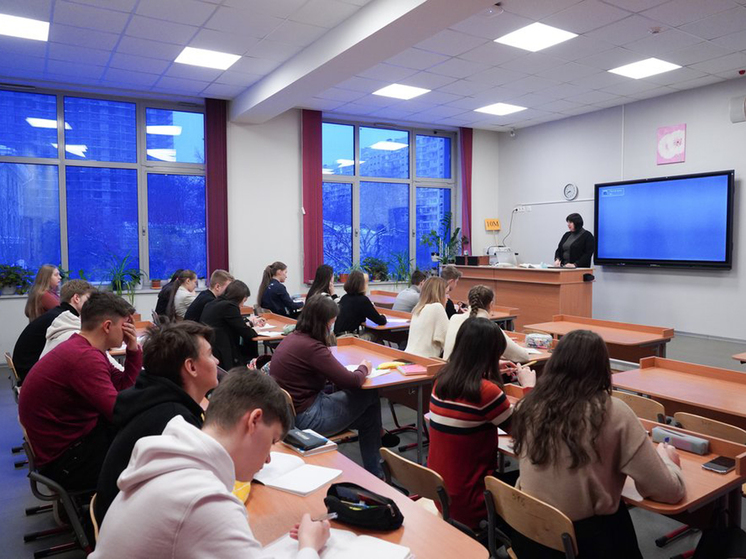Traditional values are being returned to schools: Church Slavonic has already been remembered
[ad_1]

Original initiatives are multiplying like mushrooms
“English is a dead language,” State Duma Chairman Vyacheslav Volodin said the other day. And I did not have time to declare how the “dead” English found an “eternally living” replacement. The chairman of the Synodal Missionary Department of the Moscow Patriarchate, Bishop Evfimy (Moiseev) of Lukhovitsky, bluntly raised “the question of teaching the Church Slavonic language in elementary and secondary schools.”
“In my opinion, such a measure would be very timely and expedient,” Bishop Evfimy said in a commentary to TASS on the occasion of the Day of Slavic Literature and Culture. According to the bishop, the appearance of Church Slavonic among the school subjects would help both the implementation of the course towards the preservation of traditional Russian spiritual and moral values, and the fight against foreign borrowings.
One can argue with the second statement, because if we approach the subject strictly, then Church Slavonic is one continuous foreign borrowing. It was formed from the Old Slavonic language, which in turn goes back to the Thessalonica dialect – a set of dialects of the southern Slavs who lived a millennium ago in the territory of present-day Northern Greece (Thessalonica is the name of the city of Thessaloniki in Bulgarian, Macedonian and Serbian languages).
But as for the political course, there is absolutely no need to argue. The appearance of Church Slavonic among school subjects is quite consistent with the course. Eternal spiritual and moral values have already been reflected in many state documents, rightly notes the chief missionary of the Russian Orthodox Church. “But these values are transmitted mainly through the church,” Vladyka recalls. “Accordingly, people should understand the language of the church.”
In general, everything is logical. There are, however, a number of questions. Church Slavonic is a serious subject. ABC, grammar, spelling… Will children cope with the extra workload? Will something have to be thrown out of the school curriculum, which is overflowing with a variety of educational material, so that the poor children do not move their minds? The same “dead” English, for example? And will children and their parents agree with all this outrage created by caring uncles?
Although the last question, of course, is superfluous. Who ever asked our children and their parents? They always ask questions that remain unanswered. And this, by the way, is part of the tradition. “For some reason, more and more people began to load us …” The famous hit of Alla Pugacheva – “The Song of the First Grader” – was performed for the first time back in 1978, but over the years it has only become more relevant. And the chorus looks completely prophetic:
It’s only the beginning,
It’s only the beginning,
It’s only the beginning,
Oh oh oh!
Based on this forecast, to inculcate traditional values in schoolchildren as quickly as possible (according to Minister Kravtsov, an era of moral awakening has begun in the Russian education system), it is absolutely impossible to renounce the replacement of English with Church Slavonic. Moreover, while maintaining the current course of returning “to the roots”, such a replacement becomes a matter of time.
Another manifestation of this trend is the draft amendments to the law “On Education in the Russian Federation” submitted to the Duma, in which, according to the explanatory note, “it is proposed to exclude the provision prohibiting the involvement of students without their consent and minor students without the consent of their parents (legal representatives) to work not provided for by the educational program”.
“The adoption of the bill will help strengthen educational work in educational institutions, including the formation of diligence among students, a responsible attitude to work and its results,” the authors of the bill, including Olga Kazakova, head of the Duma Committee on Education, are sure.
The project, however, does not contain a rigid framework for out-of-school labor service, which theoretically allows for any options. From weeding flower beds on school grounds to working on plantations. But so far no liability has been envisaged for evading “slave” labor. Well, the child himself refused, his parents did not give consent – so what?
However, this question is unlikely to remain unanswered for long. “Will there still be…” In the light of the ideas that are multiplying today to return Russian education to its original path, the true path, it does not seem at all a fantastic scenario in which, after Church Slavonic, rods will return to school.
[ad_2]
Source link








